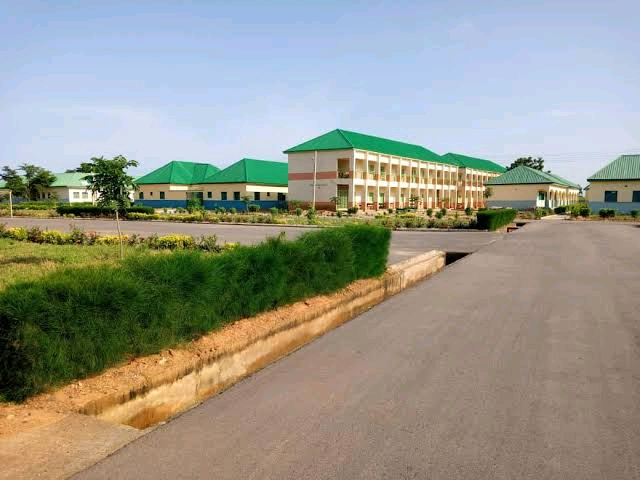Bajoga is a town and the headquarters of Funakaye Local Government Area, located in the northern part of Gombe State, Nigeria. It lies approximately 9 km south of the Ashaka Cement Factory.
Economy
Bajoga's economy benefits significantly from its close proximity to the Ashaka Cement Plant, which is just 9 kilometers to the north. As a major local employer and infrastructure driver, the plant plays a critical role in the economic development of the town.
Education
Bajoga hosts a variety of educational institutions, including some of the earliest private and government-established schools in the area.
Notable Schools:
- Mus'ab bn Umair Comprehensive Day Secondary School, Bajoga
- Government Day Secondary School, Bajoga
- Gombe State Polytechnic, Bajoga
- JIBWIS Islamic Secondary School, Bajoga
- Girl Child Initiative School
- Gandu Primary School, Bajoga
- Government Vocational Training Center, Bajoga
- Al'majiri School
- Sangaru Primary School, Bajoga
- Government Junior Secondary School Sangaru, Bajoga
- Federal Government Girls College
- Government Day Secondary School Bajoga South
Air Pollution
Bajoga experiences air pollution primarily from fine dust particles. These tiny particles can be inhaled into the deepest portions of the lungs, potentially causing serious health issues.
History
Bajoga holds historical significance due to its association with the Sokoto Caliphate and colonial events.
- Bormi Historic Site: Bajoga is home to Bormi, a location of historical importance in the context of the Sokoto Caliphate. It was near Bajoga that Sultan Muhammad Attahiru I, the last caliph, was ambushed and killed by British forces during his attempted escape to Sudan.
- Battle Site Memorial: Interestingly, the British commander who led the ambush also died during the battle. His grave remains in a nearby village, serving as a historical landmark.
- Ancient Settlement: Bajoga has existed as an important settlement for centuries, with a rich cultural heritage.
- Colonial Era: The British established a railway station in Bajoga during colonial times, and remnants of this station still exist today.
Culture
- Fulani Heritage: Bajoga is predominantly inhabited by the Fulani, known for their nomadic lifestyle and vibrant cultural traditions.
- Islamic Influence: Islam plays a significant role in shaping the town’s cultural and social life.
- Traditional Festivals: Celebrations such as Eid al-Fitr and Eid al-Kabir are widely observed and form an essential part of the cultural identity.
